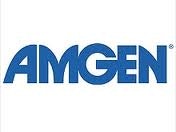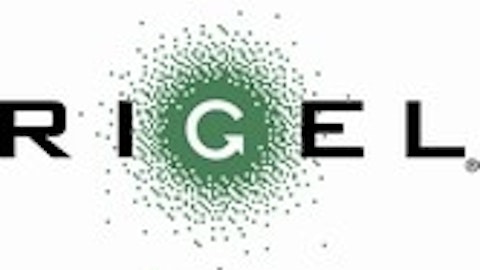The biotechnology sector can be a land of immense spoils and incredible heartbreak. It’s not uncommon to see small and midsized biotech companies swing wildly in each direction because of clinical trial data or a decision by the Food and Drug Administration.

Pros and cons of owning biotech stocks
Last month I presented my case for how the typical long-term investor could use biotech stocks to their advantage. My suggestions entailed focusing on companies with established pipelines, selecting clinical-stage companies that were running a large number of trials with multiple partnerships, or buying a biotech ETF that would take a lot of the guesswork out of your purchase and spread out your risk among a number of companies.
Conversely, my Foolish cohort Brian Orelli last week presented his three reasons a long-term buy-and-hold investor like Warren Buffett would never buy a biotech company. Brian noted that Buffett’s unwillingness to follow a biotech’s upcoming pipeline, biotechs’ wild valuation fluctuations, and their often small size, would make them unlikely candidates to grace Berkshire Hathaway Inc. (NYSE:BRK.A)‘s portfolio, which is usually looking for heavy hitters to help “move the needle,” as Brian put it.
The Buffett factor
To date, Warren Buffett and Berkshire Hathaway Inc. (NYSE:BRK.A) have been very conservative with their health-care investments, opting to own shares of some of pharma’s biggest names, including Johnson & Johnson (NYSE:JNJ), GlaxoSmithKline plc (ADR) (NYSE:GSK), and Sanofi SA (ADR) (NYSE:SNY).
But, with all due respect to Brian, I think Buffett is missing a crucial piece of the puzzle in his investment portfolio, and that missing piece is a biotechnology investment.
The way I see it, in its simplest form, Buffett values three things: business sustainability, growth, and income. Let’s have a look at how these three values might play into the biotech sector, and ultimately, what biotech company Buffett would be foolish to pass up.
Sustainability
By sustainability, what I’m really focusing on is an established pipeline of drugs already in existence. This would mean that many companies that have one or two drugs approved by the FDA and have the remainder of their pipeline currently in trials wouldn’t fit the bill. Warren Buffett has the “set-it-and-forget-it” type of investing style that only sustainable and established pipelines would satiate. Two names in particular that come to mind here are Amgen, Inc. (NASDAQ:AMGN) and Biogen Idec Inc. (NASDAQ:BIIB).
Amgen, Inc. (NASDAQ:AMGN)’s current portfolio should put a gleam in Buffett’s eyes, as it currently boasts 10 separate FDA-approved drugs. Headlining Amgen, Inc. (NASDAQ:AMGN)’s portfolio is the combination of Neulasta and Neupogen, which both treat neutropenia, a condition in which the body lacks white blood cells because of cancer treatments or a bone marrow transplant. These two drugs delivered 3% organic growth last year and contributed to $5.2 billion of Amgen, Inc. (NASDAQ:AMGN)’s $15.3 billion in product sales. At the lower end of Amgen, Inc. (NASDAQ:AMGN)’s product portfolio, its two newest drugs contributed triple-digit growth. Xgeva, which was approved in 2010 to treat patients with bone fractures or bone pain in instances where cancer has spread to the bone, and Prolia, an injectable medication aimed at reducing bone fracturing in high-risk osteoporosis patients, saw sales growth of 113% and 132%, respectively, in 2012.
Biogen Idec Inc. (NASDAQ:BIIB) may even be a better fit for the category, because many of its FDA-approved drugs — six in total — fit into the category of treating multiple sclerosis. The recently approved Tecfidera, as well as Fampyra, Tysabri (to which Biogen just purchased the full rights for $3.25 billion), and Avonex are all in some way treatments for multiple sclerosis. Further, Biogen’s pipeline has an additional five MS drugs currently in clinical trials. Although Tysabri has other FDA-approved uses (Crohn’s disease), the combination of Avonex, Tysabri, and Fampyra brought in $4.1 billion of Biogen’s $5.5 billion in revenue last year. That demonstrates Biogen’s utter dominance and focus with regard to multiple sclerosis.
Growth
When I talk about growth in biotech stocks, I’m more focused on the pipeline potential than anything else. Having an established portfolio of drugs is fantastic, but if there’s little going on in the pipeline, patent expirations and voracious generic competition will eat a company’s revenue for lunch within a matter of a decade. That’s why Celgene Corporation (NASDAQ:CELG) and Gilead Sciences, Inc. (NASDAQ:GILD) offer the best potential for growth in the sector.
Celgene Corporation (NASDAQ:CELG) already has two existing strong performers in Revlimid, a second-line multiple myeloma treatment, and cancer drug Abraxane. Its portfolio, however, looks as if it’s about to get a big boost from the additional indication for Abraxane to treat non-small-cell lung cancer and the recent FDA approval of Pomalyst for advanced multiple myeloma. Clinical trials of Abraxane when combined with Eli Lilly & Co. (NYSE:LLY)‘s Gemzar also showed promise in treating pancreatic cancer and could possibly yield another indication.
Gilead Sciences, Inc. (NASDAQ:GILD) also looks like it’s going to shoot through the roof from a growth perspective. Stribild, Gilead’s four-in-one HIV drug, was approved last year and will help boost margins in a big way, since all four compounds used in the drug are made in-house — a stark contrast to Atripla, where royalties were shared among three companies. The bigger promise comes from the sheer outperformance of Sofosbuvir, an oral hepatitis-C medication that’s blown through all four late-stage clinical trials with flying colors. This drug has blockbuster potential written all over it, and it could completely replace IV-based interferon treatments within a matter of a few years.
Income
There’s no deeper meaning with what I mean by income here — it’s all about the dividend payout. Buffett loves to hold companies for the long haul and especially enjoys owning companies that reward shareholders. In the biotech sector, dividends are few and far between, but Amgen, Inc. (NASDAQ:AMGN) and PDL BioPharma Inc. (NASDAQ:PDLI) offer investors ample rewards.
Amgen only began paying a dividend in 2011 but has already boosted its dividend payout twice, by 29% and 31%, in that time span. Currently yielding 1.8% and with a payout ratio of just 26%, this stock has a yield that looks quite sustainable.
PDL BioPharma is a special case because it isn’t exactly a biotechnology company but is, instead, an intellectual-property leaser of its antibody technology that other biotech companies use. The royalties from PDL’s products have afforded it a robust yield topping 8%. However, with PDL’s royalty interest so intricately tied to Biogen’s Tysabri, and Tysabri’s patent expiration nearing, PDL’s dividend (and even business model) may be at risk.
The biotech Buffett should buy
Once we’ve eliminated the small and mid-cap biotech stocks from contention — because we know that Buffett likes companies that’ll “move the needle” — we’re left with a handful of really good choices.
In the growth column, as I stated last month, between Celgene and Gilead Sciences, I truly favor Gilead. Celgene’s experimental psoriasis treatment Apremilast didn’t perform as well as many analysts had hoped in late-stage trials, while Gilead’s Sofosbuvir outperformed even the loftiest expectations in its phase 3 trials.
Deciphering between Amgen and Biogen Idec when it comes to sustainability, it was a bit more difficult, as both companies offer well-established pipelines with plenty of growth opportunity as well. If I were to put myself in Buffett’s shoes, I could see him selecting Amgen because of its broader diversity with regard to treatment potential. Biogen’s MS-focused pipeline may be too centric and keep Buffett on the sidelines.
In terms of income, this is all Amgen’s show, with few biotech companies ponying up the cash to pay shareholders a dividend.
When push comes to shove, Amgen would make the perfect biotech stock for Warren Buffett and Berkshire Hathaway. Its product portfolio contains 10 diverse FDA-approved drugs in the areas of inflammation, nephrology, and bone diseases. From a growth perspective, its pipeline contains 14 ongoing phase 3 trials, which is double the number of ongoing phase 3 trials at Biogen Idec at the moment. Finally, when it comes to income, few can top the dividend growth at Amgen, or its 1.8% yield. In addition, Amgen’s made gigantic share repurchases over the past decade totaling nearly 42% of its outstanding shares, which helps add value to existing shares.
I believe Warren Buffett would be mistaken to overlook Amgen’s potential.
The article The 1 Biotech Stock Warren Buffett Should Buy originally appeared on Fool.com.
Fool contributor Sean Williams has no material interest in any companies mentioned in this article. You can follow him on CAPS under the screen name TMFUltraLong, track every pick he makes under the screen name TrackUltraLong, and check him out on Twitter, where he goes by the handle @TMFUltraLong.The Motley Fool owns shares of Berkshire Hathaway and Johnson & Johnson and recommends Berkshire Hathaway, Gilead Sciences, and Johnson & Johnson.
Copyright © 1995 – 2013 The Motley Fool, LLC. All rights reserved. The Motley Fool has a disclosure policy.

